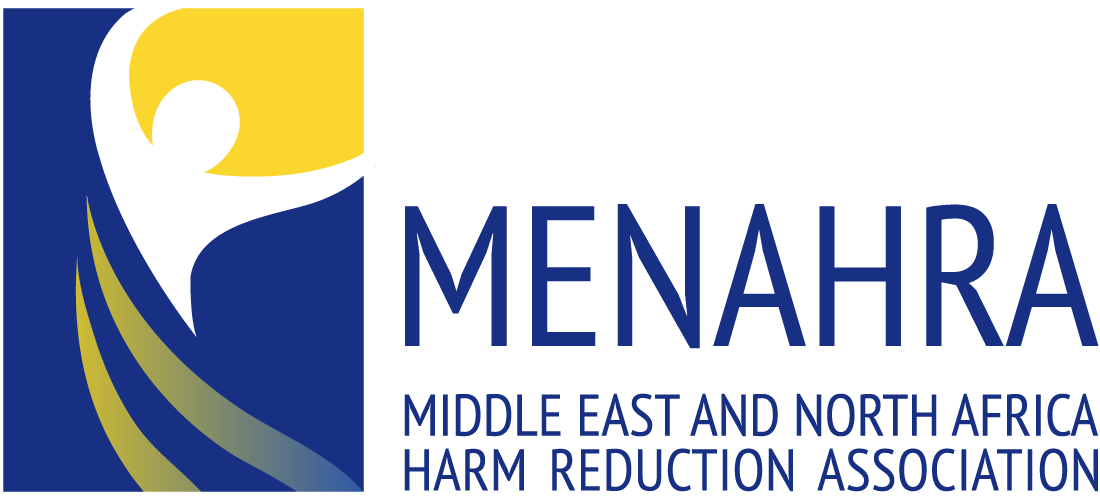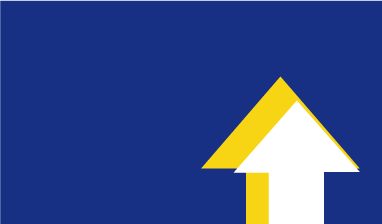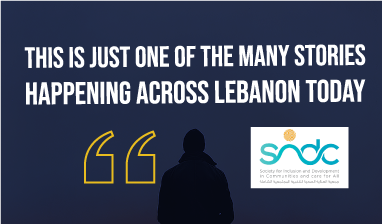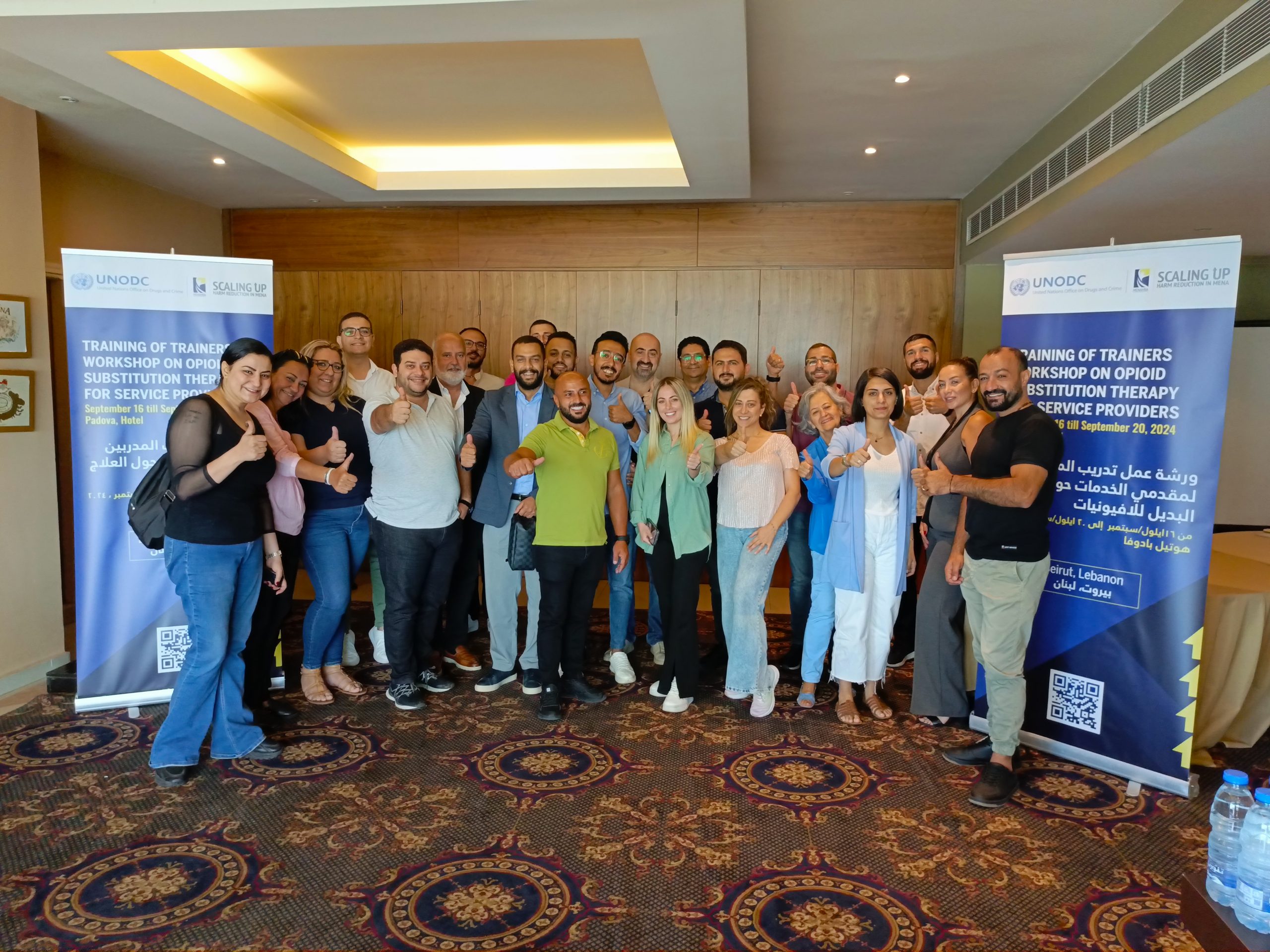In line with AJEM’s commitment to fostering inclusivity and equity, a series of gender equity awareness sessions were conducted within the Opioid Agonist Treatment (OAT) Program at the Rabieh Center in Lebanon. These sessions aimed to address gender disparities, enhance understanding of gender-related issues, and reduce the stigma associated with female substance use.
Staff Members Involved
The sessions were expertly facilitated by professionals from AJEM Rabieh Center, comprising a psychologist and the head nurse. Their collaborative approach notably improved each session’s effectiveness. Furthermore, two female peer educators from the AJEM OAT community adeptly transitioned between sessions, playing crucial roles in facilitating communication and engagement. Their firsthand experiences enriched the discussions, leading to improved participant interaction. Overall, the project coordinator ensured seamless coordination and execution of the sessions.
a) Trainers’ Role and Functions
The trainers, leveraging their expertise in addiction, mental health, and gender-related issues, designed a curriculum tailored to the target audience. They conducted thorough research to understand gender-related challenges faced by female beneficiaries and collaborated with the project coordinator to outline session objectives, topics, and methodologies. During the sessions, they led discussions, provided insights, and adapted content based on participant engagement and feedback. Post-project, they participated in debrief sessions to evaluate effectiveness and contribute to future initiatives.
b) Female Peer Educators’ Role and Functions
The female peer educators, after training with the trainers, shared their experiences with substance use and recovery to inform session content. During sessions, they actively participated, sharing stories and perspectives to contextualize content, engaging participants, and facilitating group activities. Post-project, they provided feedback on effectiveness and remained involved in ongoing efforts to promote gender equity within the AJEM community.
c) Coordinator’s Role and Functions
The project coordinator oversaw implementation, managed logistics, monitored progress, addressed issues, and collected participant feedback during the project. Post-project, he conducted comprehensive evaluations, finalized documentation, and shared findings and recommendations with AJEM leadership and donors.
Gender Equity Awareness Sessions
Gender equity awareness sessions were conducted for beneficiaries of the OAT (Opioid Agonist Treatment) Program at our center in Rabieh for both outpatients and inpatients. These sessions, commencing on the 27th of March and concluding on the 13th of May 2024, were designed to support a total of 220 patients.
The sessions unfolded on the following dates:
● 27th of March
● 28th of March
● 15th of April ● 24th of April
● 25th of April
● 26th of April
● 29th of April
● 2nd of May
● 8th of May
● 9th of May
● 13th of May
Session Structure and Participation
Initially planned to accommodate 20 participants per session, the format was revised after the first session based on evaluations from trainers, peer educators, the coordinator, and attendees. It was collectively decided to divide the participants into smaller groups of 10, allowing for more intimate discussions and increased engagement. The two trainers and two peer educators then rotated between these smaller groups, tailoring their discussions to the specific topics covered in each session.
Topics Covered
The sessions addressed a range of topics aimed at fostering understanding and promoting gender equity. These included defining gender equity, examining the impact of gender norms on diagnosis and treatment, discussing challenges unique to female beneficiaries, addressing stigma and discrimination, and acknowledging the supportive role of friends and community members in the recovery process.
Session Dynamics and Participant Engagement
With the revised format of smaller groups, the sessions became characterised by dynamic interactions and deeper engagement. Participants found the smaller group setting conducive to open dialogue and sharing. The involvement of peer educators, who shared their challenges and experiences, further encouraged participation and built trust within each group. Additionally, the provision of refreshments continued to enhance participant engagement and fostered a supportive atmosphere conducive to learning and discussion.
Content and Importance of the Sessions
These awareness sessions covered a broad spectrum of critical topics aimed at fostering a comprehensive understanding of gender issues within the context of substance use and recovery. Detailed discussions were held on the definitions of gender equity and gender norms, emphasizing how these impact diagnosis and treatment in substance use disorders. The sessions also explored the unique challenges faced by female beneficiaries, including stigma, discrimination, and societal pressures, and offered practical strategies to overcome these barriers. By addressing these topics, the sessions aimed to dismantle misconceptions, encourage empathy, and promote supportive community involvement.
This content is vital as it equips participants with the knowledge and tools to foster an inclusive environment, ensuring that both male and female beneficiaries receive equitable support and treatment. These sessions are important because the gender equity awareness sessions provide essential education on the unique challenges faced by female substance users, who often encounter additional stigma and discrimination. By addressing these critical topics, the sessions help to break down harmful stereotypes, promote understanding, and create a more supportive and empathetic community. This not only enhances the effectiveness of the OAT program but also ensures that both male and female beneficiaries receive fair and equitable treatment, ultimately contributing to their successful recovery and well-being. Outcomes and Impact
Key outcomes and impacts included:
●Increased Awareness: Both male and female participants gained valuable insights into gender-related issues and practical strategies to address stigma and discrimination. This fostered a more inclusive understanding and empathy within the group, helping to break down gender barriers.
●Enhanced Participation: During the sessions, there was a notable increase in outreach, with several individuals seeking help for treatment. This included three new female enrollees and five additional male participants, highlighting the sessions’ effectiveness in raising awareness and encouraging individuals to seek support. This surge in participation underscores the sessions’ impact on motivating both genders to actively engage with the OAT program and seek help and treatment.
●Positive Feedback: Participants, both male and female, reported feeling fully integrated into the sessions and demonstrated a clear understanding of the barriers preventing women from seeking substitution treatment. The interactive methodology and supportive atmosphere were crucial in achieving this positive reception. Male participants showed increased sensitivity towards the challenges faced by their female counterparts, while female participants and peer educators felt more supported and understood within the community.
●Empowerment and Support: The sessions empowered female beneficiaries by providing them with a platform to voice their experiences and challenges. Male beneficiaries, on the other hand, became more supportive allies, contributing to a more cohesive and empathetic community within the OAT program. Recommendations and Future Directions Given the success of these initial sessions, it is recommended to continue conducting gender equity awareness sessions regularly. Future sessions should build upon the insights gathered, ensuring they remain impactful and supportive.
Specific recommendations include:
●Regular Feedback Collection: Continuously gather feedback from participants to assess the effectiveness of the sessions and identify areas for improvement.
●Expand Outreach: Increase efforts to reach a broader audience, including more female participants, to ensure widespread impact.
●Community Involvement: Engage the broader community in these initiatives to foster a supportive environment for all beneficiaries.
Conclusion
The gender equity awareness sessions at AJEM Rabieh Center have laid a strong foundation for promoting inclusivity and support within the OAT program. Moving forward, AJEM remains committed to advocating for justice, dignity, and well-being for all beneficiaries.






